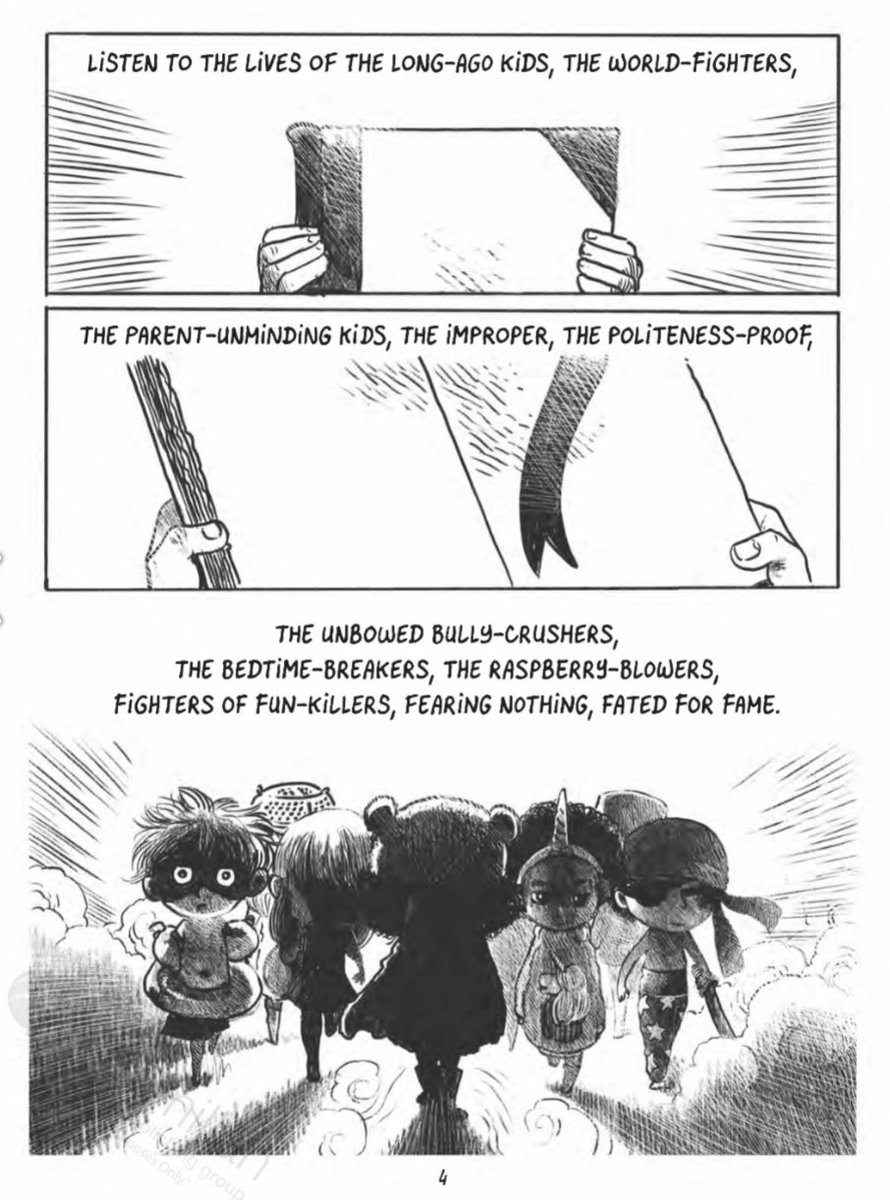Analyzing the Metre of Bea Wolf
Bea Wolf, Zach Weiner's retelling of Beowulf as a kids graphic novel, is a great book and worth checking out. As a linguist, the author is excited to see it because alliterative Old English metre is a really cool verse form. This article looks at the first full page of Bea Wolf and analyzes the metre.

Gretchen McCulloch
Internet Linguist. NYT bestselling author of BECAUSE INTERNET. Cohost @lingthusiasm, a podcast that's enthusiastic about linguistics. she/her 🌈

-
Bea Wolf, @ZachWeiner's retelling of Beowulf as a kids graphic novel, is a great book and you should check it out
— Gretchen McCulloch (@GretchenAMcC) March 21, 2023
Also, as a linguist I am excited to see it because alliterative Old English metre is a really cool verse form! Why should iambic pentameter get to have all the fun! https://t.co/ajFVtBmoyV -
So this is the first full page of @ZachWeiner's Bea Wolf
— Gretchen McCulloch (@GretchenAMcC) March 21, 2023
Let's analyze the metre!
Read it out loud and see what you notice! pic.twitter.com/aJkXJDEJeO -
Old English metre is built from two half-lines, connected by alliteration
— Gretchen McCulloch (@GretchenAMcC) March 21, 2023
This means an important word in the first half of the line (not strictly syllables but before the pause/comma/syntactic break) has to begin with the same letter as an important word in the second half -
What's an "important word"?
— Gretchen McCulloch (@GretchenAMcC) March 21, 2023
Well it's a word that contributes a lot to the meaning of the text, so nouns and verbs are great candidates for alliteration, tiny function words like pronouns and prepositions less so -
Also you wanna have your repeating sounds be at the beginning of stressed syllables
— Gretchen McCulloch (@GretchenAMcC) March 21, 2023
This is what makes alliterative metre fun and exciting compared to other verse forms we're familiar with, which care about endings (rhymes) rather than beginnings/medial repetition -
So in this line, the repeating sound is p
— Gretchen McCulloch (@GretchenAMcC) March 21, 2023
It occurs in the first half-line in "parent"
And in the second half-line in "politeness-proof" (double! bonus points!)
Also bonus points for the p beginning the stressed syllable of "improper" pic.twitter.com/M76oTrXJBE -
So, alliterative metre is not the same as creating a tongue twister!
— Gretchen McCulloch (@GretchenAMcC) March 21, 2023
We're not trying to get every word beginning with the same sound, we're trying to use it to emphasize the important parts -
Also, alliterative metre is a memory technique, remember Beowulf was originally an oral poem!
— Gretchen McCulloch (@GretchenAMcC) March 21, 2023
So if you can remember that one important word in this line starts with p, that'll help you with the second half -
We also avoid tongue twister effect by picking a different sound to alliterate on for each line
— Gretchen McCulloch (@GretchenAMcC) March 21, 2023
(obviously there are only so many sounds so we'll eventually have to do p again but we'll wait a bit)
Here the next lines are with b and f pic.twitter.com/uKzLQUhqNx -
(despite the linebreak, for aesthetic purposes I presume, I'd consider "the unbowed bully-crushers" to be part of the same line as "the bedtime-breakers, the raspberry-blowers" from a metrical perspective, there isn't an exact syllable count but there's a line length ~vibe) pic.twitter.com/Ik4xRSvYLf
— Gretchen McCulloch (@GretchenAMcC) March 21, 2023 -
One of the great things that any metrical form lets you do is emphasize certain bits of information: here we have a lot of alliteration with s which emphasizes the kid's name, Sonya pic.twitter.com/8VI8hc6DFF
— Gretchen McCulloch (@GretchenAMcC) March 21, 2023 -
Compare this to the introduction of Tanya, who gets repetition of t instead to emphasize her name (though not as intensely as the s for Sonya's intro) pic.twitter.com/dn0hpBOfhN
— Gretchen McCulloch (@GretchenAMcC) March 21, 2023 -
Comparatively, if you want to emphasize names in rhyming metre, you need to delay them to the end of the line
— Gretchen McCulloch (@GretchenAMcC) March 21, 2023
eg a limerick "there once was a man from Nantucket" / "there was a young lady named Sally"
It's just a whole different vibe! -
I'm really looking forward to an explosion of people writing in alliterative metre in about 20-30 years once these kids grow up https://t.co/LBBZhfjMPl
— Gretchen McCulloch (@GretchenAMcC) March 21, 2023 -
Yes, I've also noticed that a lot of children's literature uses alliteration in some form, even if it's not strictly speaking metrical (where metre is defined as giving yourself strict constraints to work in, often culturally shared with other people)https://t.co/4yVO16AWjz
— Gretchen McCulloch (@GretchenAMcC) March 21, 2023 -
Another thing that's not strictly speaking metrical but is very very characteristic of Old English poetry is the use of compounds (kennings) to describe people and things
— Gretchen McCulloch (@GretchenAMcC) March 21, 2023
eg whale road for sea, ring-giver for king https://t.co/Z9BBnhaLSH pic.twitter.com/TWfxwQaA4p -
English is grammatically so well suited to compounds!
— Gretchen McCulloch (@GretchenAMcC) March 21, 2023
It's just easy for us to make them, and this is as true for Modern English as Old English
It's also a thing of the Germanic languages, though English tends to use spaces or hyphens where eg German writes as all one word -
Look at all these descriptive compounds in Bea Wolf!
— Gretchen McCulloch (@GretchenAMcC) March 21, 2023
World-fighters
Parent-unminding
Politeness-proof
Bully-crushers
Bedtime-breakers
Raspberry-blowers
Fun-killers pic.twitter.com/r5Yg89vOxz -
Another book that uses alliterative metre (there aren't that many!) is @rkirstein's Steerswoman series,
— Gretchen McCulloch (@GretchenAMcC) March 21, 2023
In this case not the whole thing but as specially a poetic verse form of a fictional group of people with an oral poetic tradition pic.twitter.com/NpLm7A2gZS -
Oh yeah how could I forget to mention the translation of hwaet! https://t.co/Ea0yK1Y4iu
— Gretchen McCulloch (@GretchenAMcC) March 22, 2023
